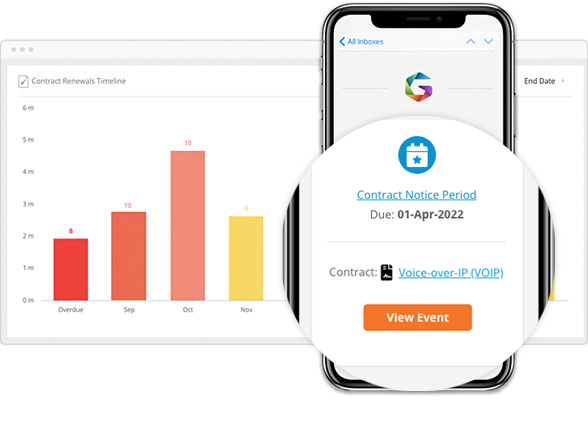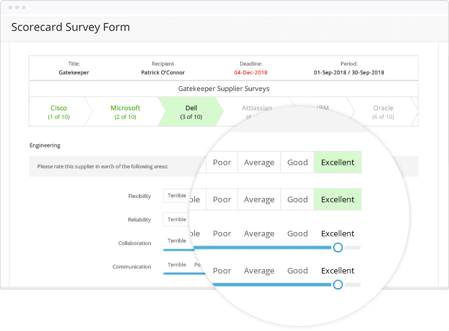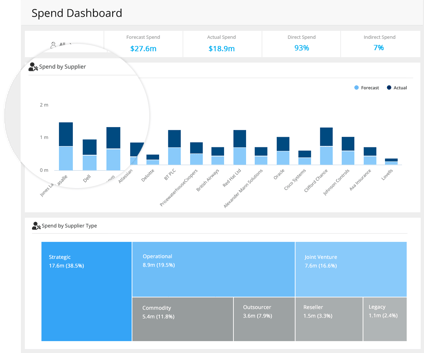![]()
Wait! Before You Go…
Stay connected and get the latest insights in contract management!
Visit our LinkedIn Page to join a community of professionals and stay updated on industry trends, best practices, and expert tips from Contractmanagement.online.
![]()
![]()

In The ROI of Contracting Excellence 2023 report, WorldCC and Deloitte revealed that businesses are experiencing an 8.6% erosion in contract value. This is positive news against the previously cited 9.1% in 2014, but in nearly a decade, the gap hasn’t narrowed too much.
In the past few years alone, businesses have felt the impact of the pandemic, supply chain disruptions, war and inflation. In the coming years, an increase in regulation, AI tools and a focus on ESG requirements will see things shift again.
It’s no surprise to see that 78% of surveyed organisations have made some investment in Contract Lifecycle Management (CLM) over the last five years – with many citing speed to signature as the main reason.
This, however, is the wrong marker for success.
Businesses have been trying to navigate a world that is constantly changing, they have spent too much time focusing on maximising contract efficiency, rather than contract value. A lot of erosion occurs after the signing stage – yet is often left without ownership.
Without careful post-signature contract management, businesses are setting themselves up for potential value leakage and missed opportunities.
The most effective type of contract management is one that takes an end-to-end approach, with ownership and accountability being driven for all contract outcomes.
After all, contracts are not just legal documents to be signed and stored away. They are strategic business assets that are in play all the time.
Letting your contracts run in the background exposes your business to risks associated with poor performance, unfulfilled obligations and unidentified risks.
Understanding what is happening with your contracts post-signature is more important than the speed of getting the signature in the first place.
Timely renewal of contracts is critical to maintaining a continuous flow of services and products, and failure to do so can result in operational disruptions and unexpected expenses.
Failing to negotiate renewals effectively can lead to missed opportunities for securing better terms or rates.
Without proactive post-signature contract management, a company may end up agreeing to renewal without fully assessing the contract’s ongoing value or negotiating adjustments based on changes in the market or their needs.
This can lock a company into less favourable terms for the duration of the renewed contract, impacting the overall contract value, company bottom line and potential growth.
Key Performance Indicators (KPIs) serve as the compass guiding the direction of contract performance. They provide vital insights into the effectiveness and efficiency of service delivery, offering opportunities for continual improvement. Ignoring these KPIs can lead to missed opportunities to enhance service delivery and improve productivity.
Without monitoring KPIs, businesses may fail to identify underperformance or non-compliance until it becomes a significant issue, resulting in contractual penalties or – in severe cases – contract termination.
By proactively monitoring KPIs, businesses can take timely action, rectify performance issues, optimise productivity and prevent contract value leakage.
The arena of contract management is replete with potential risks and compliance burdens. These can include legislative changes, contractual obligations, ESG requirements, data protection regulations, and more.
Failing to effectively manage these risks and maintain compliance can lead to severe legal and financial consequences, including penalties, lawsuits, reputational damage, and loss of business.
For example, non-compliance with data protection regulations can result in hefty fines and serious reputational damage. Likewise, non-adherence to contractual obligations can lead to disputes or financial penalties, and can even risk the continuity of business relationships.
Robust risk management and strict compliance are crucial in preserving contract value and avoiding potential legal and financial pitfalls.
Without a thorough understanding of where and how funds are being spent, businesses run the risk of overspending on goods and services or missing opportunities to consolidate spend and leverage volume discounts.
Without proper spend review management, businesses may overlook key budgeting and forecasting errors. These can manifest as over-allocation of resources to less critical areas while neglecting more important ones. This misalignment between spending and business priorities can lead to significant value leakage over time.
Vendor and contract lifecycle management software (VCLM) from Gatekeeper provides businesses with a comprehensive and structured approach to maximise contract value, particularly in the post-signature phase. Here’s how:
Without an organised system in place, tracking contract renewal dates across a large number of agreements can be incredibly difficult, potentially leading to missed deadlines or automatic renewals that could incur unnecessary costs.
Gatekeeper automates this process, providing alerts and notifications for upcoming renewals. This allows businesses to:

Manage renewals with Gatekeeper
For effective vendor management, your business needs to define what meaningful value looks like. This includes setting measurable KPIs that align with the company’s business goals and could include:
Gatekeeper provides a visual way to track and monitor vendor performance against agreed-upon KPIs. Using balanced scorecards within a VCLM platform allows you to set and track performance metrics, ensuring vendor deliverables align with business goals.
Scorecards provide an overview of vendor and contract performance, allowing you to identify areas of underperformance early on. This proactive approach allows businesses to take corrective action so obligations are not only being fulfilled but the maximum value is being delivered.

Track vendor performance through scorecards
Risk management is critical to prevent potential issues that might lead to contractual disputes or failures.
Gatekeeper’s MarketIQ Suite offers:
This includes around-the-clock risk intelligence feeds that continually monitor various factors such as market trends, legal changes, vendor-related news and it alerts your business about potential risks.
This proactive approach to risk mitigation empowers businesses to negotiate contracts with vendors based on a better understanding of the associated risk.
Inadequate spend tracking can lead to financial wastage and contract value erosion. If you don’t know what is being spent where, it’s impossible to know if any value – let alone whether maximum value – is being achieved.
With VCLM software, businesses gain a granular view of their spending across all contracts.
Insights and analytics from this software can reveal inefficiencies and discrepancies, allowing businesses to optimise their spend, reduce wastage, and maximise the value derived from each contract.
Gatekeeper offers spend dashboards that provide a clear and detailed overview of your company’s spend across various vendors and contracts. It also integrates with ERP systems like Netsuite, bringing all your spend data into one place. This helps in identifying cost-saving opportunities and maximising contract value.

Track all spending within Gatekeeper
Author: Shannon Greaney
Have you ever been caught off guard by a contract renewal… that nobody remembered?
Contracts are fundamental to human civilization, enabling structured collaboration, accountability, and progress. Their development over millennia reflects the evolving complexity of societies, economies, and...
Top 10 reasons procurement wants a CLM—and why every function should demand it (with AI’s Game-Changing Role)